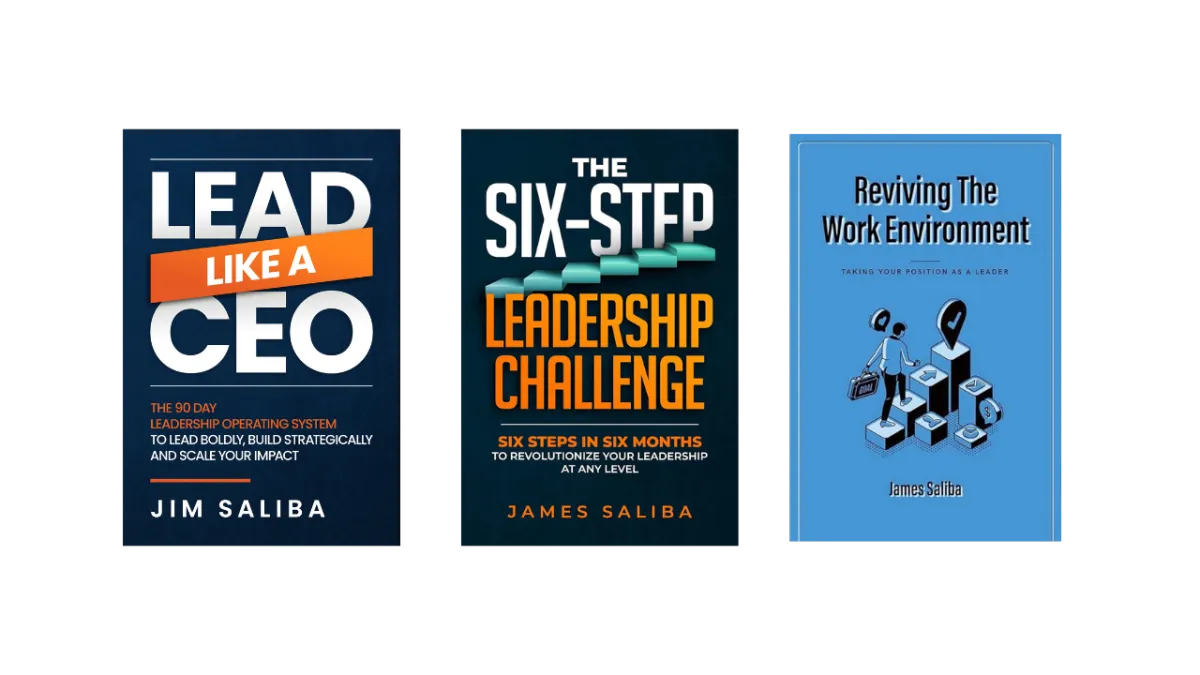Insights for Real-World Leadership
Straight talk and proven strategies for leaders who are done babysitting and ready to lead at the next level.

Escaping the Busyness Trap: Prioritizing Sustainable Success
In today's fast-paced world, it's easy for companies to fall into the trap of busyness. They feel the need to be constantly busy and productive, believing that it's the only way to succeed in a competitive market. However, this mindset can be harmful, both for the company and its employees. In this article, we'll explore why we revere busyness, the damage it causes, and how to reverse course.
Why do we revere busyness?
Busyness has become a status symbol in our society. We equate being busy with being successful, productive, and important. We feel that if we're not busy, we're not achieving anything. We also have a tendency to overestimate the importance of our work, thinking that everything we do is essential and urgent. This mindset creates a culture of overwork and burnout, which can have serious consequences for both individuals and companies.
The damage of busyness
Busyness can be detrimental to both individuals and companies. For individuals, it can lead to burnout, stress, and a decreased quality of life. When employees are overworked and exhausted, their productivity and creativity suffer. They may also experience physical and mental health problems, which can lead to absenteeism and a decrease in overall performance.
For companies, busyness can lead to a focus on short-term gains at the expense of long-term success. When companies are constantly busy, they may overlook important strategic opportunities and fail to innovate. They may also experience high turnover rates, as employees become disillusioned and seek better work-life balance elsewhere.
How to reverse course
To reverse the damaging effects of busyness, companies need to prioritize their employees' well-being and work-life balance. This can involve implementing policies such as flexible work arrangements, mental health support, and time off for self-care. Companies should also encourage a culture of collaboration and communication, rather than individual competition and overwork.
Reward team-focused output, not just activity: Companies should shift their focus from measuring productivity solely based on activity, to also measuring output that contributes to the team's overall goals. This encourages collaboration and team cohesion, and incentivizes employees to work smarter, not just harder.
Assess whether your organization is generating deep value and eliminate low-value work: It's important for companies to assess whether the work they are doing is actually adding value to their customers, stakeholders, and the overall organization. This requires regularly evaluating the company's goals and strategies, and eliminating any low-value work that is not contributing to them.
Force people off the clock: While flexibility and remote work can be beneficial, it's important for employees to also disconnect from work and have time for other pursuits. Companies should encourage employees to take time off, set clear work hours and boundaries, and discourage working outside of those hours.
Build slack into the system: Building slack time into the workday allows employees to have time for reflection, creative thinking, and deep work. It also allows for unexpected challenges or opportunities that may arise. This can be done by scheduling regular breaks or quiet time, reducing unnecessary meetings or interruptions, and setting realistic timelines for projects.
By implementing these concepts, companies can move away from the busyness trap and towards a more sustainable, productive, and fulfilling work environment. It requires a shift in mindset and culture, but the benefits to both employees and the organization are well worth the effort.
In conclusion, busyness has become a damaging cultural norm in many companies. It's important for individuals and companies to recognize the harmful effects of overwork and prioritize well-being and work-life balance. By doing so, companies can create a more productive, sustainable, and fulfilling work environment for their employees.
Want to change your course download our free eBook "Revolutionize Your Career: An Insiders Guide" on https://JamesSaliba.com.
Leaders Who’ve Made the Shift
Michael R., Senior VP

“Jim did more in two sessions than my last coach did in six months.”
(Translation: Jim doesn’t waste your time.)
Karen H., Senior VP

“Jim made it easy to focus on the real leadership challenges.”
(Translation: No fluffy theories. Just real talk and results.)
Ashly N., Director

“Within 15 minutes, I knew I’d made the right decision.”
(Translation: You’ll know fast if Jim’s your coach.)
Stop Acting Like the Chief Fire Extinguisher.
Start Leading.
You know the endless approvals, babysitting, and check-ins aren't real leadership. Let's fix that.
© 2026 James Saliba Inc. • All Rights Reserved • Helping Tech Leaders Lead Strategically Without Firefighting • Terms & Conditions


